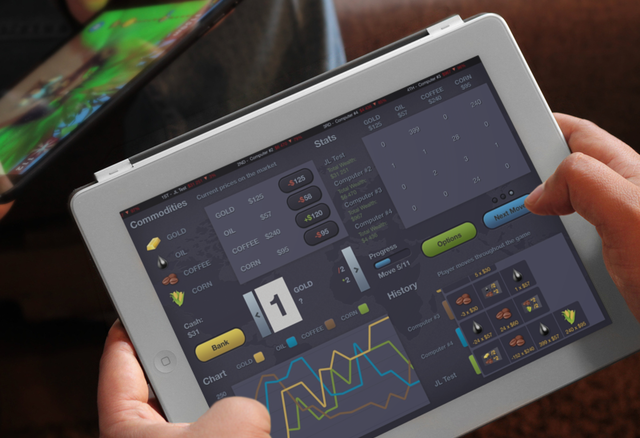You are certain that you will be developing a powerful web media portal that will look great and perform great. It will offer visitors everything you intended, and you are planning to fill the portal with useful information over time. So how do you ensure that your money is efficiently spent and you won’t run into limitations in the near future?
You must choose the right solution.
Today, many platforms, frameworks and various technologies exist on the market. They vary in functionality, price, complexity, support, maintainability and other important factors. A solution for your problem is the right combination of aforementioned. You are interested in saving money on development and ensuring your solution will technologically support anything you want to throw at it.
A platform defines a foundation for the website – the Operating System and the programming language used (Java, PHP, .NET are among the most popular web programming languages). A framework is a set of building blocks on top of a programming language that allows to avoid reinventing the bicycle and easily integrate your project with different services. Another relevant term for this topic is Content Management System (CMS) – an application for media management (add and browse galleries of texts, pictures, videos, create users and so on). Usually, it is a part of your project, along with the website front-end (part of the website that is displayed to the user). If you choose to base your project on a ready-made system, it can come with a CMS to help you start with something. If you are in need of special functionality that no CMS can offer, grab a framework and create anything you wish, but not from scratch – basic web functions will be implemented for you.
At Infinite Software, we strive to choose the perfect solution for each case, based on what the customer wants today and will request tomorrow. Over the years of developing various projects, we gained some useful experience, which we will discuss today.
The main question to start with is: go for an out-of-the-box or a custom solution?
The first option gives you the opportunity to start fast, but if you will require flexibility and extended functionality, custom is the way to go. A great example of an out-of-the-box solution is Wordpress, with its large recognition and a huge marketplace of themes and plugins. However, note that extending Wordpress capabilities will not be cheap (its approach on programming requires time and skill to master). You might also consider another CMS like Drupal, which is harder to master on the non-programming side, but more powerful and developer-friendly. If you are building a media portal, content management is a must – you won’t be uploading photos one by one, would you? Keep in mind that plugin development for WP, Drupal and other solutions is not controlled strictly, therefore there are no guarantees (except user feedback, not always present) that all plugins will work well with each other.
The second option will make your project unique, and give you higher flexibility of control. When developing a custom solution, there are many great options like Zend, Laravel and Yii, but from our experience – one of the best frameworks out there (generally speaking) is Symfony. It is open-source software present on the market for more than 10 years, just like WP and Drupal. But, it will be easier to find additional Symfony developers if needed, since it shares the same foundation as other aforementioned frameworks. Also, Symfony plugins (called “bundles”) have strict specifications, which ensures that everything always works together. We’ve completed many successful projects in Symfony, and haven’t found a reason to change our mind.
There are several additional important questions you must answer to make the right decision.
Question 1. What is your budget?
If you want to start somewhere without investing much, picking up Wordpress and installing a theme of your liking is the way to go. Paid themes usually cost cheaper than paying for designing something similar, but no one is stopping you even from choosing a free theme – this way, you are paying basically for the hosting only. However, bear in mind that someone else might have acquired that theme, and your portal will lack in originality. Not only that, themes actually lack in customization options as time goes by and you are thinking about fancy menus and specially formatted text in the site’s header. Building a project in Symfony or a similar framework will cost you noticeably more time and funds, but the customization options will be practically endless, and the design will be original, hand-crafted and suited to the idea of your portal.
Tip. Search and view demos of some free and paid Wordpress themes. Decide, whether it will be sufficient even in a year’s time, or going for a custom project is inevitable. If you are not sure, how a custom project will look like compared to Wordpress, view some of our projects here.
Question 2. How many visitors are you expecting?
If you are expecting hundreds of thousands of visitors per day, you might consider going for a custom solution based on a powerful framework in order to sustain a solid performance. Other reasons include expectations for lots of comments and lots of registered users.
Question 3. Is prestige important?
Wordpress historically was meant for small blogs, and many people won’t take your project seriously if you reveal it is based on WP. Of course, there are some large media portals like SlashGear, TechCrunch and The New York Times, which are based on Wordpress. But, in order to stay on top, they had to invest heavily to customize it. This task becomes less effective over time, because the developers are put against a growing set of limitations. And the problem affects not only the design (WP themes are pretty limited in customization), but also the functionality (plugins can give you what is possible but not more, and they often have compatibility issues). Drupal is generally considered to be a more serious choice, but it will require some more time in development.
Maybe you plan offering special features to registered users? Maybe e-commerce is what you plan to do? Sure, there are many plugins for out-of-the-box solutions. A custom solution might not be cheap at the very beginning, but over time, it pays off. You will have the opportunity to spend funds on implementing what you need, rather than trying to make all those things that you bought, work for you as intended. Plus, people will treat you more seriously if your portal is custom-built, just like having custom hand-crafted furniture or clothing. But in this case, you are not paying extra just for the prestige, but for development efficiency.
To sum up: for a small blog, an out-of-the box solution saves you money. If you go big, WP is not cool. A custom solution always is. When done right. Contact us.
Question 4. How are you planning to expand?
Think about tomorrow. How many visitors are you planning to have? What new functions should your portal receive in the future? If you are certain that the only thing you are planning to do over time is to add more content of the same type, then the out-of-the-box solution is what you need. Wordpress, for example, just like Drupal, still receives updates, and you can always get or buy another theme or plugin if needed. However, if you are planning to add a possibility for your visitors to purchase subscriptions, or integrate with another platform, or access additional features, then you may want to consider more professional solutions.
Question 5. Any special out-of-the-box features?
Are you more concerned about anti-spam filters or custom business logic? Let’s take Wordpress, for example. It comes with the Akismet plugin, which proved itself in dealing with spam in comments. It also supports social network integration and drag-and-drop of images and social content URLs (like Instagram photos) out of the box, however, anything custom (outside the scope of WP plugins) that you develop will require you to invest either more money in developers, or time to find Wordpress specialists. If you are interested in selling content, e-commerce WP plugins are usually pretty limited, and if you are selling access to media content on your portal, you should lean towards a custom solution.
Writing custom plugins, especially for Wordpress, is not an easy task. When going for a custom solution from the start, developers get freedom of choice and a guarantee that their time will be saved in the future. Note that many WP plugins actually use already-built APIs instead of being written from scratch, so if you don’t see a plugin/bundle of your-favorite-social-network for your chosen framework, fear not – any developer can make use of an API (if it is available). If not, the plugin market is always growing – keep an eye out! But most importantly, lay a solid foundation for your business.
Still can’t decide, but want to make your project a dream come true without making incorrect decisions? Contact us, we will be glad to help and develop!
Written by Nikita R-T


